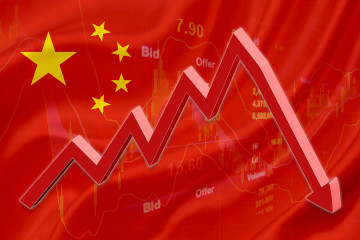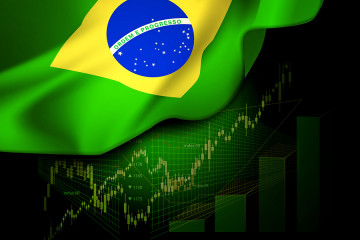Trump May Have Wrong Asian Currency in His Crosshairs

(Bloomberg) —President-elect Donald Trump has accused China of ripping off the U.S. on trade and threatened to brand the country a currency manipulator soon after taking office. Yet economists say his new best bud and China nemesis, Taiwan, is much better suited to bearing that damning label.
Sure, China’s trade surplus with both the U.S. and rest of the world is far larger than that of the island. But measured as a share of the economy – arguably a better way of judging whether a country is taking advantage of its trading partners – Taiwan’s overall surplus is more than six times the size of China’s.
“The case for naming Taiwan a currency manipulator is far stronger than the case for naming China,” said Brad Setser, a senior fellow at the Council on Foreign Relations in New York and a former Treasury Department official. In its October foreign exchange report, the outgoing Obama administration gave both Taiwan and China a pass by not naming either a currency manipulator. The president-elect flouted almost four decades of diplomatic protocol this month by directly speaking with the leader of Taiwan, drawing a rebuke from Beijing. The dispute escalated this week, with Trump saying he wouldn’t allow China to dictate to whom he could talk and Beijing warning him that Taiwan was irrevocably a part of China.
The Taiwanese dollar is undervalued by more than 25 percent against the currencies of its trading partners, giving its exporters a huge competitive edge, according to calculations by William Cline, a senior fellow at the Peterson Institute for International Economics in Washington. China’s yuan, in contrast, is more or less fairly valued by his reckoning, which takes account of current and prospective trade flows.
What’s more, China lately has been acting to limit the depreciation of its currency even though a weaker renminbi would give it a leg up in world markets. Those efforts have shown up in steady erosion in its foreign currency reserves as it has sold dollars to prevent what it fears would be an economically-destabilizing free-fall of the yuan.
Taiwan’s reserves, meanwhile, have been gently rising, suggesting that on net it’s been acting to constrain an appreciation of its currency, according to Setser of the Council on Foreign Relations.
There certainly was a strong case for branding China a currency manipulator earlier this decade as its trade surplus and foreign currency reserves ballooned. But economists say that those days are long gone.
Now Taiwan seems more suited to sporting that moniker. Maybe that’s something that Trump can mention the next time he talks with the island’s leader.
To contact the author of this story: Rich Miller in Washington at rmiller28@bloomberg.net To contact the editor responsible for this story: Sarah McGregor at smcgregor5@bloomberg.net Randy Woods







No Comment